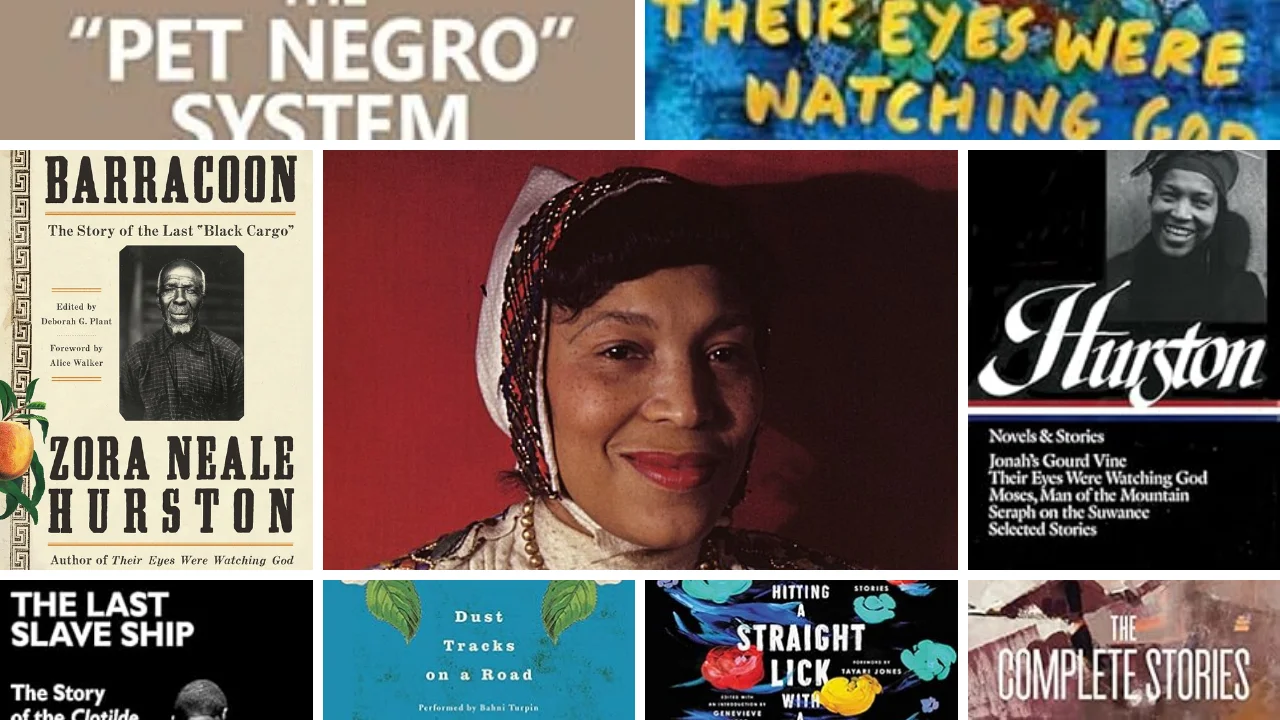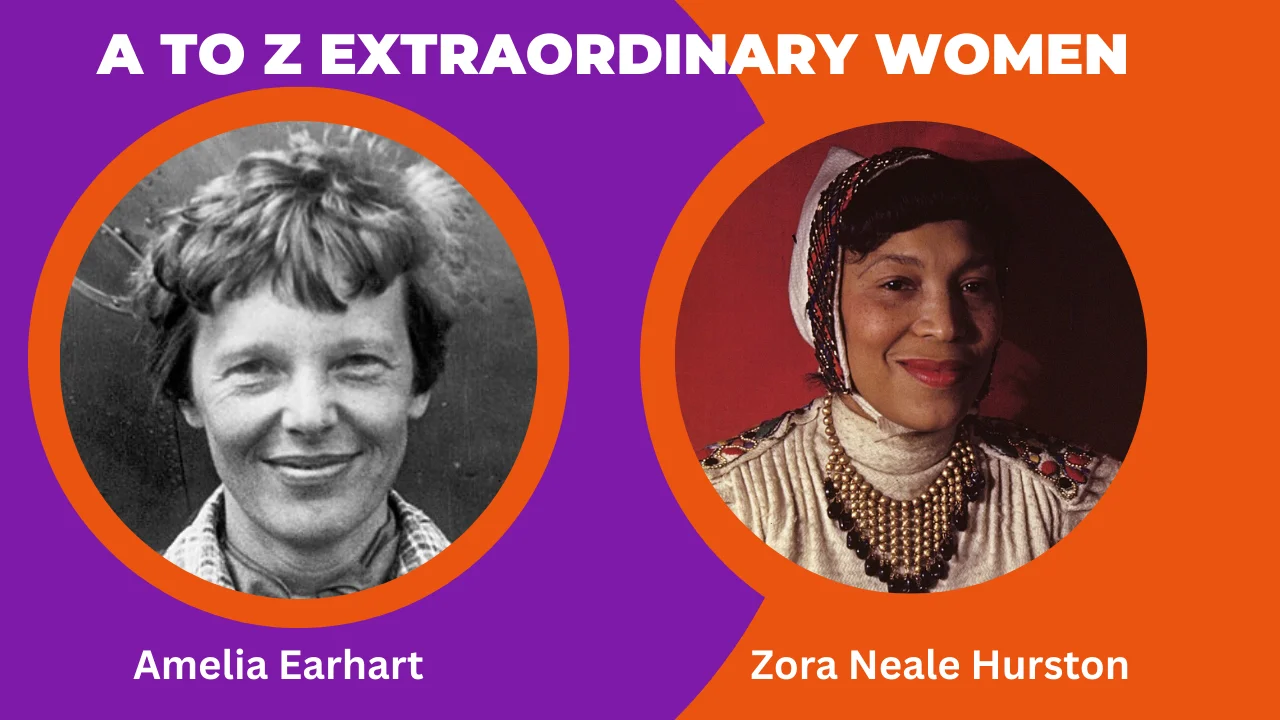Zora Neale Hurston: A Voice That Still Echoes
26 Mar 2025

Few literary figures have left as profound a mark on American culture as Zora Neale Hurston. A novelist, anthropologist, and folklorist, Hurston was a pioneering voice of the Harlem Renaissance and remains one of the most influential African American writers in history.
Her masterful storytelling, unflinching portrayal of Black life, and dedication to preserving African American folklore have solidified her legacy.
Yet, despite her contributions, she faced financial hardship and relative obscurity for much of her later life.
Today, her work continues to inspire writers, scholars, and readers, proving that her voice still echoes through the corridors of literary history.
"I belong to no race nor time. I am the eternal feminine with its string of beads."- Zora Hurston.
Roots of a Storyteller: Hurston’s Early Life and Education
Born on January 7, 1891, in Notasulga, Alabama, Zora Neale Hurston moved with her family to Eatonville, Florida, at a young age. Eatonville, one of the first all-Black incorporated towns in the United States, played a crucial role in shaping Hurston’s worldview.

She often described Eatonville as a utopia where Black people governed themselves, free from the oppressive racism of the broader American South.
This unique upbringing provided a foundation for her later works, particularly in her vivid depictions of Black life untouched by white oppression.
Hurston’s early life was marked by tragedy and perseverance. After losing her mother at the age of 13, she faced a tumultuous adolescence, moving between relatives and working various jobs. Despite these hardships, her thirst for knowledge was insatiable.
She eventually enrolled at Howard University, a prestigious historically Black college, where she co-founded The Hilltop, the university’s newspaper.

source: wikipedia[/caption]
Her academic journey later led her to Barnard College at Columbia University, where she became the first Black woman to study anthropology under renowned scholar Franz Boas.
This academic training fueled her passion for folklore and cultural documentation, elements that became central to her literary work.
Lesson : You don’t have to put yourself in a box - Hurston lived her life becoming everything she wanted to become. Hurston’s varied career as a novelist, anthropologist, and folklorist demonstrates that we don’t have to limit ourselves to one identity or profession.
Crafting a Legacy: The Rise of a Literary Giant
Hurston’s literary career began in the 1920s, during the Harlem Renaissance—a cultural explosion of Black art, music, and literature.
She quickly became a prominent figure in this movement, befriending literary greats like Langston Hughes and Alain Locke. Her early short stories and essays showcased her unique ability to blend folklore with fiction, a style that set her apart from her contemporaries.
In 1937, she published her most famous work, Their Eyes Were Watching God, a novel that tells the story of Janie Crawford, a Black woman navigating love, identity, and self-empowerment.
While now considered a classic, the book initially received mixed reviews, with some critics, including Richard Wright, dismissing it for not being politically charged enough.
Despite this, the novel has endured as a seminal work in American literature, praised for its rich dialect, compelling characters, and celebration of Black womanhood.
Beyond fiction, Hurston was a passionate folklorist. She traveled extensively through the American South and the Caribbean, documenting African American and Afro-Caribbean oral traditions.
Her anthropological works, such as Mules and Men (1935) and Tell My Horse (1938), remain invaluable resources in understanding Black cultural heritage.
A Trailblazer’s Struggles: Challenges and Controversies
Despite her literary and academic achievements, Hurston’s life was not without struggle. She often found herself at odds with other Black intellectuals of her time, as she rejected the idea that Black art needed to serve as political propaganda.
This stance led to tensions with figures like Wright, who believed that Black literature should directly address racial injustice.
Additionally, Hurston faced financial difficulties throughout her life. Unlike many Harlem Renaissance writers who received patronage from white benefactors, she largely relied on her own resources.
This independence, while admirable, often left her struggling to support herself. By the 1950s, her work had fallen out of favor, and she took on jobs as a maid and substitute teacher to make ends meet.
Her later years were further marred by a false accusation of molestation, which, though later dropped, tarnished her reputation. Isolated and in financial ruin, Hurston passed away in 1960 in a welfare home. She was buried in an unmarked grave in Florida, a tragic end for a woman who had once been a literary luminary.
Lesson: Persevere Despite Adversity – Throughout her life, Hurston faced financial struggles, professional criticism, and personal setbacks, yet she continued to write and document Black culture with passion. Her resilience teaches us that success is not always immediate, but persistence ensures that our work leaves a lasting impact.
Resurrecting a Forgotten Voice: Hurston’s Enduring Legacy
Hurston’s story might have ended in obscurity were it not for the efforts of author Alice Walker, who rediscovered her work in the 1970s.
Walker’s seminal essay, In Search of Zora Neale Hurston, published in Ms. magazine, reignited interest in Hurston’s writings and legacy.
Thanks to this revival, Their Eyes Were Watching God is now considered one of the greatest American novels, studied in classrooms worldwide.
Today, Hurston’s impact extends beyond literature. She is celebrated as a feminist icon, an anthropological pioneer, and a literary trailblazer.
The Zora Neale Hurston Festival of the Arts and Humanities, held annually in Eatonville, stands as a testament to her lasting influence. Moreover, her work continues to inspire modern authors, from Toni Morrison to Zadie Smith, who credit Hurston with paving the way for Black women in literature.
Lesson: Honor Your Cultural Heritage – As both a writer and an anthropologist, Hurston worked tirelessly to preserve Black folklore and traditions. She teaches us the importance of valuing and documenting our roots, ensuring that cultural stories and wisdom are passed down to future generations.
Conclusion
Zora Neale Hurston’s voice—once nearly silenced—now resonates louder than ever. Her fearless storytelling, dedication to preserving Black folklore, and commitment to portraying Black life with nuance and joy remain unparalleled.
She defied societal expectations, challenged literary norms, and left behind a body of work that continues to educate, inspire, and empower generations.
Through her words, we are reminded of the power of storytelling and the enduring legacy of those who dare to tell their truth. As long as literature exists, Hurston’s voice will continue to echo, reminding us all to embrace our heritage, tell our stories, and live unapologetically.




